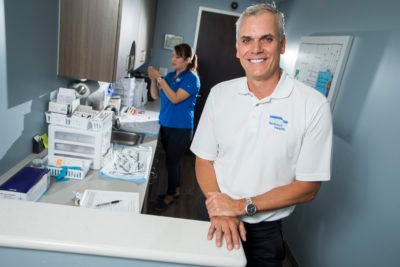It seems that we can’t go a few weeks without another story emerging on the staggering price increases of certain prescriptions. First it was Martin Shkreli with an AIDS medication, then Mylan with the EpiPen, and most recently an Irish drug manufacturer raising the price of a painkiller that, in its base form, is the combination of Aleve and another widely used medicine.
Such moves by pharmaceutical companies often cause public outrage when the public gets ahold of the news, but those who benefit from price fluctuations, and how to save when they occur, are much more nuanced.
Who Wins?
In the current system, almost everyone but the consumer and their employer. Even with good insurance coverage, on the back end of a larger copay the bulk of the price is paid by the insurance company, benefiting the drug manufacturer. To make up for the additional cost and to maintain revenue, insurers then increase premiums across the market the following year.
At the end of the day, the patient faces a higher copay and eventually a higher premium. Employers then face an added expense to their bottom line with the insurance they provide to their employees.
The Secrets to Saving
When it comes to saving money in the current system, education is key. It’s important to create a system where both the employer and employee are aligned.
Think about it in terms of administration. When it comes to an employer issuing an employee a credit card, there are many rules in place regarding how and when it can be used, and it has very close oversight of its usage overall. When it comes to insurance cards, no one is under the same restrictions. Employees can use them at clinics or hospitals with vastly varied pricing, without knowing about a cheaper alternative across town — effectively hitting the employer’s bottom line.
One of the most important assets to both the employee and employer is knowledge. No one expects the individual to have extensive clinical knowledge, but it’s imperative that people ask questions of their doctor or other medical providers. Is this the only viable medication? Does a generic exist as a more cost-effective option? People should also know that pharmacists aren’t always as interested in the consumer over their bottom line. Should a more expensive, name-brand medication exist, some won’t hesitate to provide it instead of the generic.
At Redirect Health, we provide our members with a phone number to reach our Care Logistics team, a 24/7/365 health concierge line. Should a member be confused about medication pricing, they can simply call Care Logistics and a representative can speak directly to the provider or pharmacist — which often saves the member time and money. And if a specific medication must be used, we use GoodRx to find the best price for the member.


